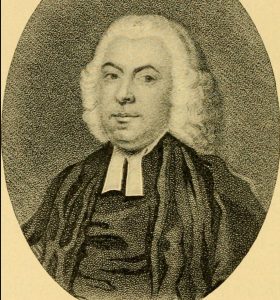When I travel to Sierra Leone to equip under-resourced pastors, one thing I have learned is that you get a much better exchange rate “on the street” than you do at the banks or markets. The “street” has very little overhead, so the exchange is great!
If you have been attending Grace Community Bible Church for some time, you know that we are passionate about an exchange—not a monetary exchange—but what we call the “great exchange.” Very simply, the “great exchange” means that if you are a Christian, on the cross your sin was exchanged for Christ’s righteousness. To expand this a bit more, on the cross God took your sin and imputed (or credited) it to Christ; and God took Christ’s righteousness and imputed (or credited) it to you. The upshot of this “great exchange” is not only are your sins completely forgiven, but you are covered with the perfect righteousness of Christ. This is indeed a “great exchange.”
But there is another “great exchange” that we must consider—the exchange that prompts the “great exchange” I just mentioned.
The other “great exchange” is when we exchanged the glory of God for the glory of self. Read Paul’s words in Romans: “Professing to be wise, they became fools, and exchanged the glory of the incorruptible God for an image in the form of corruptible man and of birds and four-footed animals and crawling creatures” (vv. 22-23). In a nutshell, Paul says that we are idolaters. Idolatry is anything in your life that is more important than God. This is our desperate condition.
It is also what makes the other great exchange—the exchange on the cross—so remarkable. So much so, that we should never be ashamed of the cross (Romans 1:16) Why? Because God takes the exchange made at the Fall and reverses it with the exchange made at the cross. On the cross, my specific sin, that of idolatry, was imputed to Christ, and Christ’s righteousness was imputed to me.
 In the eighteenth century this great exchange came to mean much to William Grimshaw (1708-1763). Remarkably, Grimshaw, an English minister, experienced this great exchange after he became a minister. Upon reading John Owen’s (1616-1683) book on the great exchange, Grimshaw was converted and enabled, as he would later say, to “renounce myself, every degree of fancied merit and ability, and to embrace Christ only for my all in all. O what light and comfort did I now enjoy in my own soul, and what a taste of the pardoning love of God.”
In the eighteenth century this great exchange came to mean much to William Grimshaw (1708-1763). Remarkably, Grimshaw, an English minister, experienced this great exchange after he became a minister. Upon reading John Owen’s (1616-1683) book on the great exchange, Grimshaw was converted and enabled, as he would later say, to “renounce myself, every degree of fancied merit and ability, and to embrace Christ only for my all in all. O what light and comfort did I now enjoy in my own soul, and what a taste of the pardoning love of God.”
Like Grimshaw testified, what great pardoning love of God do we find in the great exchange!
Pastor Dan
For more on the great exchange, see the lesson here.